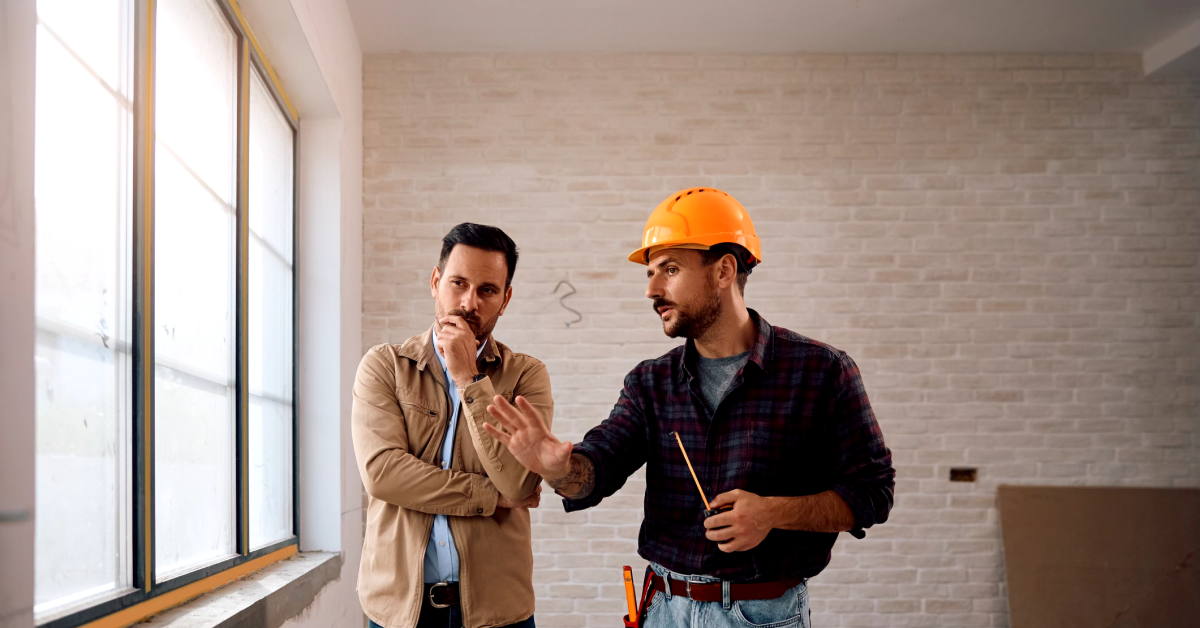Residential construction estimating is a necessary and invaluable skill for contractors. In fact, accurate estimates are the foundation to ensure the success of a project.
So, let’s explore the ins and outs of creating and presenting estimates for residential construction. Specifically, we’ll cover its importance, key details, and tools that can enhance the process.

Importance of Estimates for Residential Construction
Residential construction contractors play a central role in building homes. Overall, they manage projects from start to finish. Their tasks include planning, coordinating, and overseeing construction activities. Therefore, these contractors ensure that projects are completed on time and within budget.
As a result, estimates are fundamental to a contractor’s success. An accurate and detailed estimate provides a clear picture of the project’s scope. It includes labor, materials, subcontractor work, and other costs.
Accurate estimates prevent budget overruns and timeline delays as well. If the estimate is done well, you’re more likely to win the job and maintain profitability. Homeowners also rely on estimates for clarity, building trust, and making informed decisions. Thus, accurate residential construction estimating is critical for both parties.
Pre-Construction to Interior Finishing
Residential construction contractors must consider every facet of home building, from pre-construction to interior finishing. And these project stages will have a big impact on the estimate.
According to Angi, it can cost anywhere from $100 to $500 per square foot to build a new home. That’s between $137,054 and $523,404 for the average home. And the higher side of that range accounts for larger cities such as San Francisco and New York City.
Pre-construction includes designing the home and other costs included in the estimate, such as obtaining permits and acquiring or preparing the land. You will need to test soil, excavate, and clear trees or other debris. This all will cost money that can affect your bottom line if not included in the estimate.
Interior finishing, on the other hand, is one of the job’s final stages. This includes cabinets, countertops, flooring, doors, painting, and lighting. This work will commonly be done by subcontractors. So, be sure to include their fees in the estimate.
Key Details for Residential Construction Estimating
Creating a residential construction estimate involves several key details along with pre-construction and interior finishing. And each detail must be clear to ensure the estimate’s accuracy. For example, these details include:
- Labor Costs
- Material Costs
- Permits and Inspections
- Subcontractor Fees
- Overhead Costs
- Contingency Plans
Including these elements in your estimate ensures a comprehensive and accurate budget. It also plays a major role in the project planning once a contract is signed. So, let’s explore each key detail further.
1. Labor Costs
Labor costs are a significant part of residential construction estimating. In general, they include wages for workers involved in the project. These costs cover various trades, such as carpenters, electricians, and plumbers. Labor costs also account for the time needed to complete each task.
To calculate labor costs, you need detailed information. This includes the number of workers and their hourly rates. In addition, you must estimate the hours required for each task. Accurately estimating labor costs ensures that the project stays within budget.
2. Material Costs
Material costs are another critical component of an estimate that are commonly subject to errors. These costs cover all the materials and products needed for construction. This includes lumber, concrete, roofing materials, and fixtures.
Accurate material cost estimates prevent budget overruns. And ordering materials accurately is just as important.
Residential contractors need to consider several factors when estimating material costs. You must account for the quantity and quality of the materials. Moreover, you should also consider waste and delivery fees. Accurate material costs ensure that you can purchase all necessary items without exceeding the budget.
3. Permits and Inspections
Permits and inspections are essential for residential construction estimating. You must obtain the necessary permits before starting the work, right? Furthermore, inspections ensure the construction meets local building codes.
Including permit and inspection costs in the estimate is necessary. These costs can vary depending on the project’s location and scope. As you can see, accurate estimates not only prevent unexpected expenses, but also ensure compliance with local regulations.
4. Subcontractor Fees
Many residential construction projects require subcontractors. These are specialists who handle specific tasks, such as plumbing or electrical work. Therefore, subcontractor fees must be included in the estimate.
To estimate subcontractor fees, you need to gather quotes, availability, and schedules. Accurate subcontractor fee estimates ensure that all aspects of the project are covered. They also help maintain the project’s timeline.
5. Overhead Costs
Overhead costs are often overlooked by residential contractors. And this can be a massive mistake for your business.
Overhead costs are indirect expenses related to the project. These include office rent, utilities, and insurance. Overhead costs also cover administrative tasks, such as project management and accounting.
Including overhead costs in the estimate is essential for protecting your margins. These costs ensure that you can cover all expenses related to the project. And accurate overhead cost estimates help maintain profitability, which is the name of the game.
6. Contingency Plans
Contingency plans account for unexpected expenses that may occur during the project. These can include unforeseen issues, such as weather delays or material shortages. A contingency plan provides a financial buffer for the project that protects both your business and the customer.
Including a contingency plan in the estimate is important for many reasons. It ensures the project can continue despite unexpected challenges. Additionally, accurate contingency planning prevents budget overruns and project delays.
How Estimating Software Enhances Accuracy
Software can significantly improve the estimating process with better accuracy and efficiency. This software helps you build precise estimates quickly. It also transforms presentations to customers.
The right software will allow you to input data and generate estimates instantly. This saves time and reduces paperwork errors. The software also stores data, making it easy to access your estimates and other documentation from one job to the next.
Presenting your estimates is another key step to the process. With estimating software, you can create professional presentations that resonate with the modern customer. These presentations are clear, inviting, and easy to understand.
The best estimating software solutions also offer integrations with other tools. These integrations streamline the entire construction workflow, from sales to management and production.
How Leap SalesPro Can Help Residential Construction Contractors
Leap SalesPro is the most accurate estimating tool on the market. It helps create precise estimates, proposals, and contracts with just a few clicks.
And you can do it all with offline access. You don’t need Wi-Fi to get your work done, whether you’re in the office, in the field, in your truck, or at home. This is crucial for projects in remote areas. Offline access ensures the estimating process is not interrupted.
You can also offer good, better, and best pricing that considers the quality of materials or products to win more jobs. It’s a win-win solution for both your business and the customer. Now they have the flexibility to get the work they need at tiered pricing points.
Leap SalesPro helps you build precise estimates with accurate data and calculations. This reduces errors and improves estimate accuracy. It also helps you stay within budget and maintain profitability throughout each job.
And when it comes to partner integrations, you won’t find a better selection of tools anywhere. From measurement tools and manufacturers to CRMs and financing, Leap SalesPro fully integrates with many industry-leading tools to maximize your efforts.
All-in-all, residential construction estimating is the basis for any successful job. And it really comes down to accuracy and efficiency to protect your margins and create a sustainable business. So, are you ready to take the Leap and enhance your estimates? If so, fill out the form below and schedule a quick demo to learn more about the power of Leap SalesPro for your business.
Frequently Asked Questions
Leap SalesPro streamlines residential construction estimating with easy input features, calculations, and guardrails to prevent common paper errors. It also comes with contract linking so you can quickly turn your estimates into sign-able contracts.
An experienced sales representative should prepare the estimate with any insights from management, subcontractors, customers, and other stakeholders if necessary.
With Leap SalesPro, you can quickly generate precise, professional, and modern estimates that are more efficient and effective than paper estimates.




